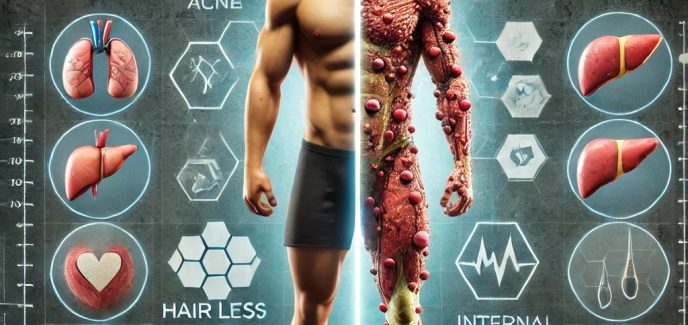What Diet and Training Regimen Should Be Followed When Taking Steroids?
A detailed guide to maximizing muscle gains and staying healthy while using anabolic steroids.
Introduction
Anabolic steroids are often used by athletes and bodybuilders to enhance muscle growth, strength, and performance. However, the use of steroids requires a carefully crafted diet and training regimen to maximize results while minimizing potential side effects. This article delves into the essential components of a taking steroids diet and training program, focusing on nutrient timing, workout strategies, and recovery protocols.
The Importance of Diet When Taking Steroids

Steroids enhance protein synthesis and nitrogen retention, making it critical to consume the right nutrients. An optimal diet supports muscle growth, improves recovery, and minimizes fat gain. Here’s how to structure your diet:
1. Protein Intake
Protein is the cornerstone of muscle growth. Aim for 1.5 to 2 grams of protein per pound of body weight daily. Excellent sources include:
- Lean meats: chicken, turkey, lean beef
- Fish: salmon, tuna, cod
- Dairy: Greek yogurt, low-fat cottage cheese
- Plant-based: lentils, quinoa, tofu
2. Carbohydrates
Carbs fuel intense workouts and replenish glycogen stores. Focus on complex carbohydrates and consume around 2 to 3 grams per pound of body weight. Examples include:
- Whole grains: oats, brown rice, quinoa
- Vegetables: sweet potatoes, broccoli, spinach
- Fruits: bananas, berries, apples
3. Fats
Healthy fats support hormonal balance, crucial when using steroids. Include fats from:
- Avocados
- Olive oil
- Nuts and seeds
- Fatty fish
4. Hydration
Steroid use can strain the kidneys and liver, making hydration essential. Drink at least 3 to 4 liters of water daily to support metabolic processes and detoxification.
Training Regimen While Using Steroids
Steroids increase recovery capacity and muscle-building potential, allowing for higher training intensity and frequency. However, proper planning is essential to avoid overtraining and injury.
1. Strength Training
Focus on compound lifts such as squats, deadlifts, bench presses, and pull-ups. These exercises recruit multiple muscle groups, maximizing growth. A sample weekly split might include:
- Day 1: Chest and triceps
- Day 2: Back and biceps
- Day 3: Rest
- Day 4: Legs
- Day 5: Shoulders
- Day 6: Rest
- Day 7: Full-body or weak points
2. Volume and Intensity
With enhanced recovery, you can perform more sets and reps at higher weights. Aim for 4 to 6 sets per exercise and keep rep ranges between 6 to 12 for hypertrophy and 4 to 6 for strength.
3. Cardiovascular Exercise
Incorporate moderate cardio to improve heart health and manage fat levels. Opt for 3 to 4 sessions per week of 20–30 minutes each, focusing on low to moderate intensity.
Recovery Strategies
Recovery is vital to capitalize on steroid-enhanced muscle synthesis. Key strategies include:
1. Sleep
Aim for 7 to 9 hours of quality sleep nightly. Steroids can disrupt sleep patterns, so consider sleep hygiene practices like maintaining a consistent bedtime and minimizing screen time before sleep.
2. Supplements
In addition to a well-rounded diet, supplements can enhance recovery and performance. Consider:
- Whey protein for convenient post-workout nutrition
- Creatine to boost strength and power
- Omega-3 fatty acids for anti-inflammatory benefits
- Multivitamins to fill nutrient gaps
3. Stress Management
Chronic stress can counteract the benefits of taking steroids. Incorporate practices like meditation, deep breathing, or yoga to manage stress effectively.
Potential Risks and Mitigation
Steroid use carries inherent risks, including liver damage, cardiovascular issues, and hormonal imbalances. To minimize these risks:
- Regularly monitor blood pressure and cholesterol levels.
- Use protective supplements like milk thistle for liver health.
- Cycle off steroids to allow the body to recover.
- Consult a medical professional before starting or stopping steroid use.
Conclusion
Following a strategic diet and training plan is essential when using steroids to maximize benefits while minimizing health risks. Focus on high-protein meals, adequate carbohydrates and fats, intense but balanced training, and robust recovery protocols. Always prioritize health and consult with professionals to ensure a safe and effective approach.
Tags: bodybuilding with steroids, muscle growth diet, steroid diet plan, steroid safety, steroid training regimen

